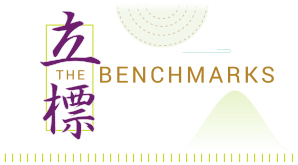The Development of Sport Science Research in Hong Kong
Over the last decade, Hong Kong has witnessed an enhanced awareness of the importance of sports. Our athletes made significant achievements at top international events such as the Olympics and we see an increased number of people engaging in physical activity (“PA”) on a daily basis. CUHK, through its academic programmes and research in the area of Sports Science and Physical Education, has undoubtedly played an important role in raising this awareness.
The Sports Nutrition & Physical Activity Research Group led by Prof. Stephen H.S. Wong of the Department of Sports Science and Physical Education (“SSPE”) has consistently contributed to this development. The Group regularly collaborates with researchers from different countries and disciplines like Medical Science, Public Health and Geography to provide insight on sports nutrition and exercise performance, the effect of neighborhood environment on PA and psychosocial behaviour and human movement across the lifespan.
Culture-specific research on physical activity and health
The Group collaborated with the Institute of Human Performance and Department of Geography of The University of Hong Kong to locate where and when children’s PA declines. Using accelerometers, environmental audit tools, and geographic information systems (GIS), the research has tracked changes of PA and eating behaviour over a two-year period and has identified the stability and changes in the multilevel determinants within the social ecological model. It was found that PA declined significantly during the early years of primary schoolchildren. Parental support and a supportive physical environment play an important role in attenuating this decline. The findings will help parents and policymakers formulate effective intervention strategies to promote a healthy lifestyle for our next generation.
A collaborative study with Deakin University of Australia has examined the correlates of PA and screen-based behaviour in Chinese children. One of the interesting findings of this study was that homework and PA did not seem to be contradictory to each other. Those girls who spent a lot of time doing homework still managed to participate in PA. The study also suggested that interventions should consider multiple and sex-specific factors for promoting an active lifestyle and reducing sedentary time among Chinese children. The established collaboration with Australian universities is further strengthened by a PhD student being awarded a prestigious Endeavour Research Fellowship to conduct further impactful research in this emerging area.
Evidenced-based support to elite athletes
Another research focus of the Group is sports nutrition with emphasis on the application of the glycemic index in exercise performance. As part of an ongoing sports science support to athletes, the Group has conducted performance testing on various national team squads from the Hong Kong Football Association at the Exercise Physiology Laboratory at the SSPE Department. Professional and apprentice jockeys from the Hong Kong Jockey Club have undergone a battery of sports science assessments with a view to enhancing their health and wellness and reducing their overall predisposition to sustaining injury during races. A unique opportunity for our students to conduct research on the performance of elite athletes was provided through the Group’s collaboration with Beijing Sports University.
An interdisciplinary approach to sports science research
“We treasure an interdisciplinary and inter-institutional approach in our research. By doing that, we are able to reach the international scientific community and influence local professionals in sport and health-related industries, including both school and non-school settings,” said Professor Wong.
The Basics







